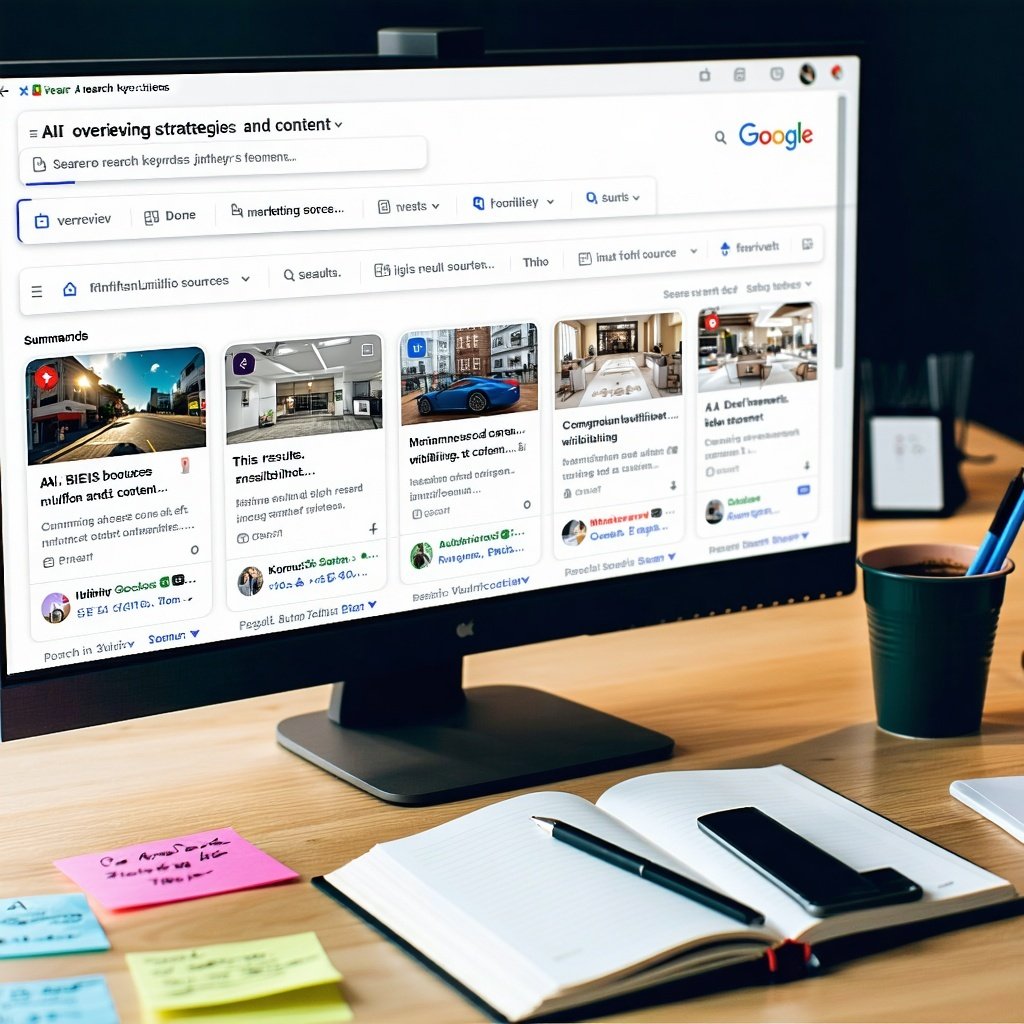AI Overviews Are Stealing Your Clicks—Here’s How to Steal Them Back
When Google introduced AI Overviews—its innovative machine-generated summaries that are seamlessly integrated into the top of search results—it...
%20(23).png?width=302&height=302&name=_SD%20web%20assets%202025%20(500%20x%20500%20px)%20(23).png)
2 min read
Marketing
:
April 3, 2025
Can Deep Pages Enhance Your Google Visibility? 5 Key Insights from AI Overview Research Search engines are evolving. Recent findings from the enterprise SEO platform BrightEdge reveal that the majority of citations in Google’s AI Overviews are not sourced from the homepage. In fact, a mere 0.5% link to a site’s main page. Instead, the bulk of citations originate from what are termed deep pages—content located two or more clicks away from the homepage.
These findings are reshaping the way we think about SEO and content visibility. While the homepage has historically been the central hub for a brand’s digital presence, it’s now clear that deeper content may be the real driver of traffic in the AI-powered search era. Recent research supports this shift. A large-scale study by Botify and DemandSphere found that Google’s AI Overviews appear in 47% of search results—nearly one in every two searches. This means that deep content has more opportunities than ever to surface in AI-generated responses.
BrightEdge analyzed millions of URLs cited in Google’s AI Overviews. Their research revealed that 82.5% of those citations came from deep content pages. These are the kinds of pages that are often overlooked—blog posts, resource articles, in-depth guides, or niche landing pages that aren’t always easy to find from the main navigation.
Although these pages may not carry the same design polish or prominence as a homepage or top-level service page, they tend to provide highly specific, targeted information. That may be why Google’s AI is referencing them so frequently. The content is often detailed, precise, and written to answer very specific questions.
The report also found that 86% of the citations pulled into AI Overviews appeared for only one keyword. This suggests that Google’s AI is matching content to user queries in an incredibly focused way. Rather than pulling from general overviews or category pages, it’s drawing from individual posts and pages that cover a single topic in depth.
BrightEdge also noted that the median search volume for keywords triggering AI Overview citations is over 15,000 searches per month. In fact, nearly one in five of those keywords exceeds 100,000 monthly searches. That means deep pages aren’t just helping with niche, long-tail queries. They’re showing up for high-traffic search terms that can drive significant visibility.
Citations in Google’s AI Overviews are surfaced within the AI-generated summaries that appear at the top of some search results. These summaries are designed to give users quick, direct answers to their questions. When Google’s AI includes a citation, it points to the specific page that helped generate the answer.
Because AI-generated answers rely on precision, it makes sense that the algorithm would favor well-structured, high-quality content—even if it’s buried deeper in a site’s architecture. The AI isn’t looking for the most popular or most visible page. It’s looking for the best answer.
With AI-driven search, any page on a website can serve as an entry point. This means that even older content, provided it remains accurate and well-optimized, might be the first thing a user encounters.
The key factor is how well the content matches the user's query. This evolution favors specificity. Pages dedicated to a single topic with detailed, clear explanations tend to excel in AI Overviews. These pages might not always rank highest in traditional search results, but they are often deemed most useful by AI for addressing specific questions.
For a long time, SEO strategies have prioritized the homepage and key top-level pages. But the findings from this study suggest a different approach may now be more effective. In today’s landscape, it’s essential to treat every page as a potential landing page. That includes blog posts, case studies, FAQs, and other resource content.
Making sure these pages are crawlable, well-structured, and updated regularly could improve their chances of being cited in AI Overviews. The content doesn’t need to be flashy. It just needs to be useful.
As AI continues to influence how search engines surface content, optimizing deep pages could be one of the most impactful steps businesses can take to improve their visibility.

When Google introduced AI Overviews—its innovative machine-generated summaries that are seamlessly integrated into the top of search results—it...
-1.png)
SEO as we know it is undergoing a transformation. With Google increasingly using AI to generate answers directly in search results, traditional SEO...

Understanding Domain Authority and Its Importance Domain Authority (DA) is a crucial metric developed by Moz that predicts how well a website will...